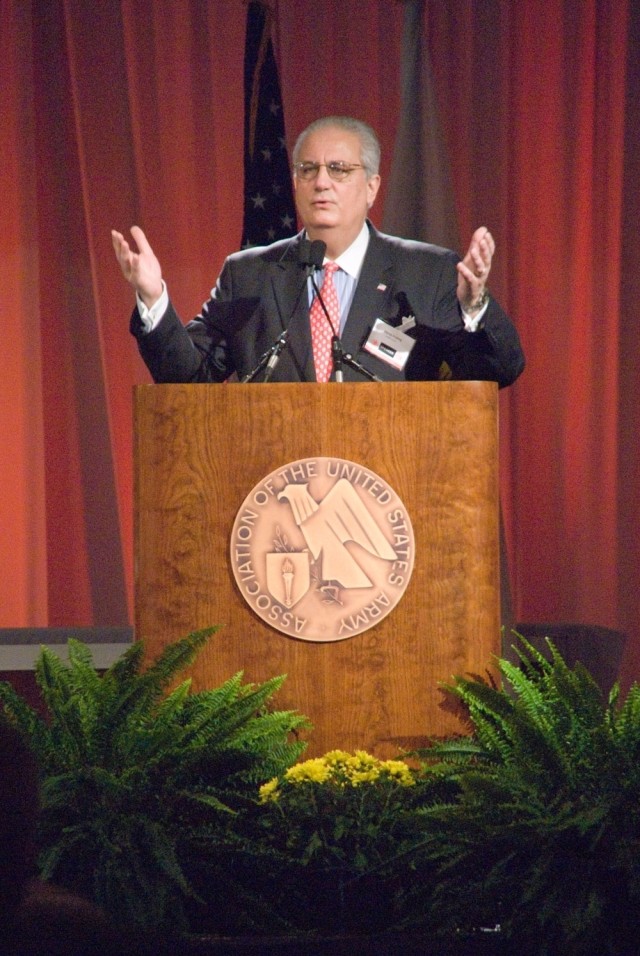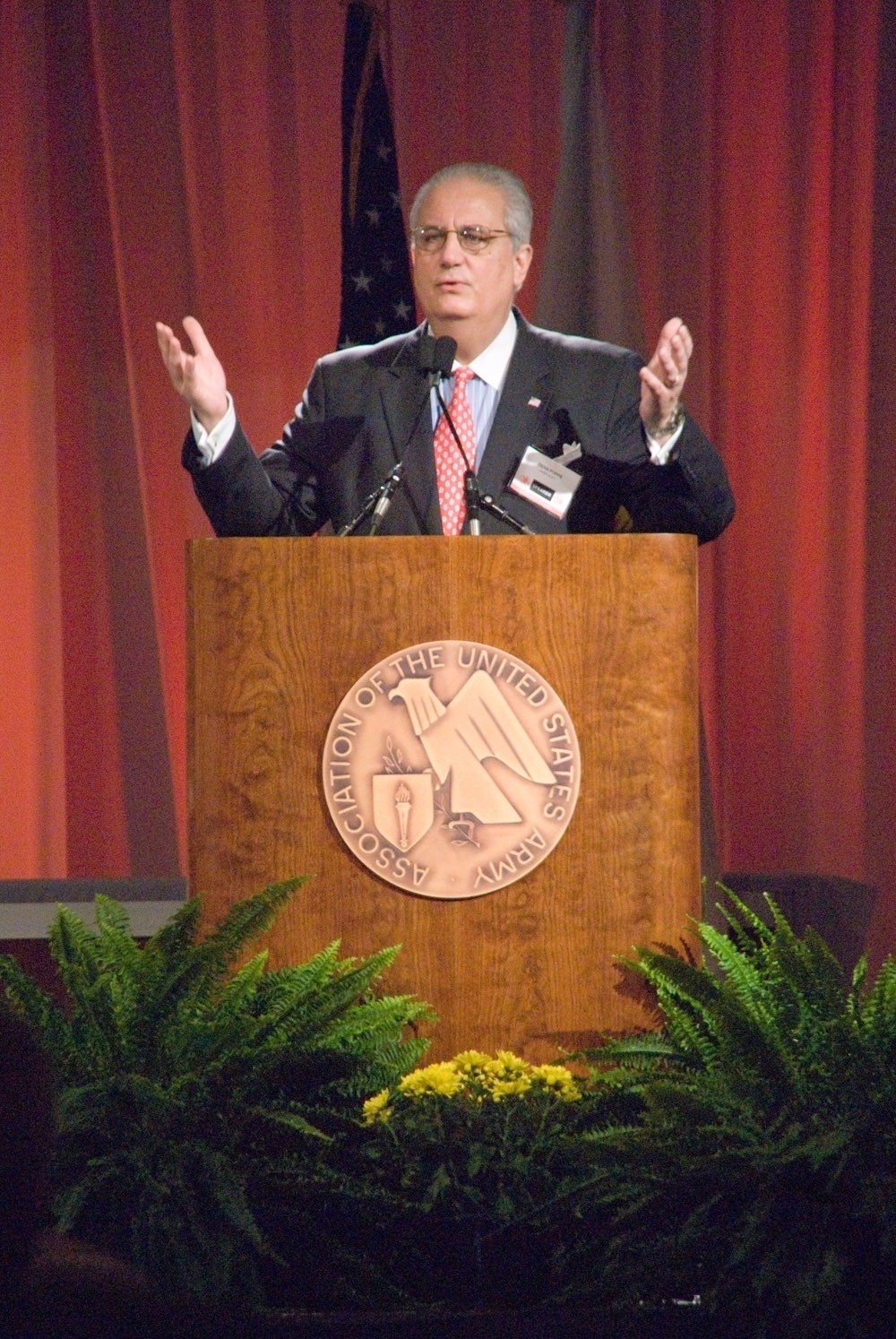
FORT LAUDERDALE, Fla. (Army News Service, Feb. 26, 2008) - The Army acquisition community's efforts in Iraq have contributed to an economic boom in the country, and reflect the service's core mission of stability operations.
Dean G. Popps, assistant secretary of the Army for acquisition, logistics and technology, made that statement during the opening session of the Association of the U.S. Army's winter symposium. He explained how Army acquisition had inherited responsibility for reconstruction and relief programs worth some $18 billion, and said the Army's management of those programs has transformed both the acquisition community and Iraq.
"During that period of 2003 to 2007, the Army acquisition group, acquisition, logistics and technology, along with the great institution known as the Army Corps of Engineers, committed, obligated and disbursed against 4,400-plus projects in Iraq," Popps said. "I would submit to you that that was the largest Army program ever."
The result of the Army's distribution and management of those funds has transformed Iraq, Popps said.
"It has contributed to a boom in Iraq, an economic boom," he said. "That's 3 million barrels of oil a day, demand for electricity up five-fold. Now Baghdad and other parts of the country have 18-20 hours a day of electricity. And in Iraq, a person who used to make two dollars a day now makes $2,000 a month."
Managing those programs also transformed the agency beyond its role of managing large-scale acquisition programs and developing policy.
"That was an organizational transition," he said. "I don't think anyone could have imagined, at 9/11, that an organization would transform itself into expeditionary contracting and expeditionary reconstruction, right from a headquarters element."

Social Sharing